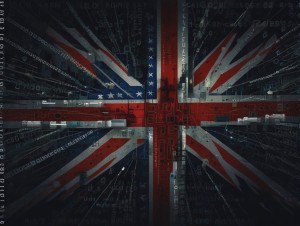The warfare landscape is on the brink of transformation as advanced technologies and artificial intelligence (AI) become increasingly prominent. Former Chairman of the Joint Chiefs of Staff, Army Gen. Mark Milley, has raised significant concerns and predictions about the impact of these technologies on the character of war. In a recent interview for CBS’s 60 Minutes, Milley stressed the urgency of preparing for this evolving paradigm. This article explores the key takeaways from his insights, the role of AI in military operations, and the ethical and legal implications accompanying this technological evolution.
AI accelerates decision-making
Milley’s assessment centers on the profound impact AI will have on the decision-making processes in military operations. He specifically points to the OODA loop—observe, orient, direct, and act—as the decision cycle that will undergo a radical transformation. In the past, this strategy involved commanders making quick decisions, such as Napoleon issuing orders at night. However, AI is set to automate this loop, potentially allowing computers to analyze vast amounts of information and assist in determining troop movements and timings.
Gen. Milley’s predictions suggest that AI’s optimization for commanding and controlling military operations could materialize within the next decade to 15 years. While this timeline may raise eyebrows, it underscores the rapid pace of AI development in various sectors, including defense. The implications are vast, as AI could drastically alter the power dynamics on the global military stage.
Human oversight remains essential
Despite the impending integration of AI into military decision-making, the Department of Defense (DoD) maintains a firm stance on human oversight. Current DoD standards dictate that all decisions involving the use of force must involve a human in the OODA loop. Deputy Secretary of Defense Kathleen Hicks reiterates this commitment, emphasizing that autonomy in weapon systems should always have a human responsible for the use of force.
The “Replicator” program
The DoD has initiated the “Replicator” program to counterbalance China’s expanding military capabilities. This ambitious project aims to create thousands of AI-powered autonomous weapons systems. Deputy Secretary Hicks reassures that the program will align with the established policy of human oversight in using force. This initiative underscores the United States’ determination to maintain its military edge despite technological advancements.
Concerns and ethical dilemmas
The International Committee of the Red Cross highlights the potential pitfalls of autonomous weapons, including those employing AI. Concerns extend to unintended consequences, such as civilian casualties and the possibility of exacerbating conflicts. As the utilization of AI in warfare escalates, ethical and legal considerations become paramount. Gen. Milley acknowledges these advancements’ multifaceted challenges, encompassing legal, ethical, and moral dimensions.
The trajectory of warfare is undeniably shifting as advanced technologies and artificial intelligence become integral to military operations. Gen. Milley’s insights into the acceleration of decision-making through AI offer a glimpse into the future of conflict. However, the firm commitment to human oversight in the Department of Defense and the ethical concerns raised by organizations like the International Committee of the Red Cross remind us of the need for careful consideration in this transformative era of warfare.
In a world where AI and technology increasingly shape the battlefield, the United States and other nations must navigate a path that balances military effectiveness with ethical responsibility. The implications are vast, and the timeline uncertain, but the importance of addressing these challenges head-on cannot be overstated. The future of warfare, driven by AI, calls for vigilance, careful policy development, and global cooperation to ensure a secure and ethical evolution of military capabilities.
In a rapidly changing world, where the boundaries of technology and warfare converge, the readiness of nations to adapt and address these challenges will ultimately determine the course of future conflicts.





